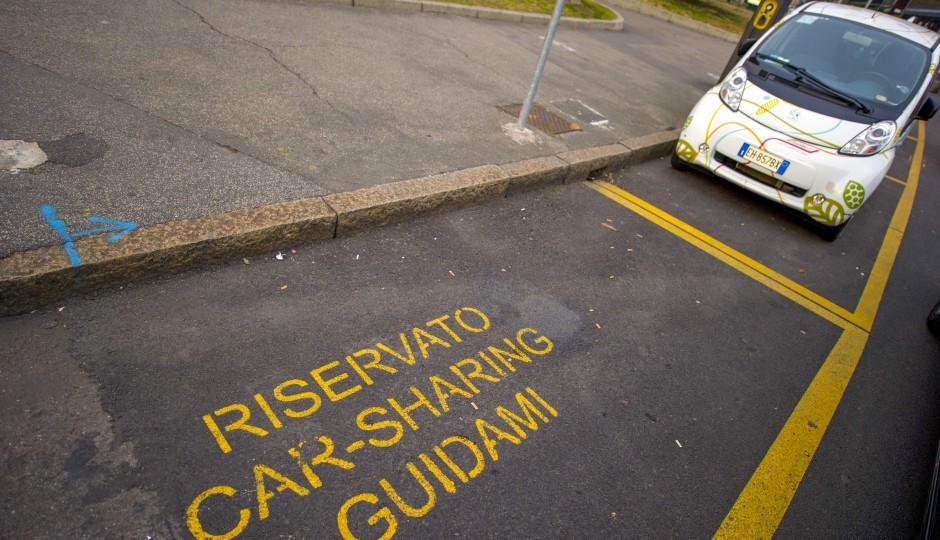How Car Sharing Can Lower Rent Costs
Last month, Citified wrote about how Philadelphia’s zoning code could help solve the never-ending parking problem here. It turns out there’s another reason to be gung ho about the new law: It could increase the availability of affordable housing in the city.
First, a quick recap: For every three residential units that a developer builds, they must also create one parking spot under the 2012 zoning code. Unless, that is, they create parking spaces for car-sharing services (like Enterprise) instead — in which case, they only have to build one spot for every 12 residential units.
By utilizing this alternative, developers can reduce the volume of new parking spaces they must build by as much as 40 percent.
Too bad few of them are taking advantage of the opportunity.
On first blush, it might seem like a no-brainer for developers. They don’t have to create as many parking spaces if they build car-sharing spots instead of traditional ones. But consider the fact that more parking allows owners to charge more rent for their units.
The fact that so few developers are using the city’s car-sharing incentive is a detriment to renters, because parking decreases the amount of space available for rentable units. And fewer units at higher prices is the bane of affordable housing, as CityLab’s Eric Jaffe explains:
Parking (especially surface parking) becomes a scourge on a city. Residential lots and spaces make individual units less and less affordable for tenants. They also result in fewer units as a whole, meaning the supply of housing across the city takes a hit. That too jacks up rents over time, as neighborhoods run out of sites to develop, and families run out of places to live.
According to a 2012 study by Portland’s Bureau of Planning and Sustainability, a typical 50-unit building will sacrifice 20 potential units for on-street parking. “A building with surface parking is able to utilize 50 percent of development capacity,” the study says. To make up for the loss, the perks of in-house parking are passed down to the consumer. Rental prices in an average four-story building typically jumped 50 percent — from $800 to $1,200 — with the addition of parking.
But it turns out that despite charging higher prices, the gambit is not necessarily a lucrative one for developers. The study indicates that builders would make more money on rent by charging less to each tenant, if their units were filled to capacity — $40,000 a month for a 50-unit building, compared to $36,000 a month for a 30-unit building with parking at the higher price.
In fact, if the zoning code relinquished parking requirements altogether, it could foster gains for affordable housing — a major concern in Philly, where the rental population grew by 28 percent between 2006 and 2013. Meanwhile, only 5 percent of low-income renters in the city can afford the rental units that are available.
By not providing parking, developers could also disincentivize automobile use, which helps to foster a greener, more walkable city.
Assuming the broad strokes of the Portland study are applicable to Philly (and they should be, since they’re market-driven trends), then affordable housing could be an unintended beneficiary of the zoning code’s car-sharing incentive.
That will rely on more Philadelphians giving up their cars to slacken the demand for spaces, though. And it’s not clear people are ready to do that.
According to survey data provided by Enterprise CarShare, 32 percent of Philadelphia members already own or lease a vehicle, outside of the shared cars they borrow. That’s by far the highest percentage out of the five cities surveyed; for comparison’s sake, only 13 percent of members in New York already own a vehicle.
Even if all those people started exclusively using their car-share vehicles, their idle personal vehicles would still require parking spots.
In order for car-sharing companies like Zipcar and Enterprise to truly shrink the volume of parking in this city, and thus give a boost to affordable housing, the ranks of these double-dipper drivers will have to slim.
